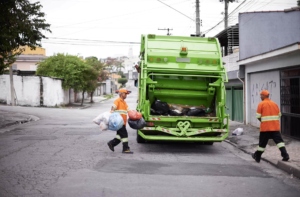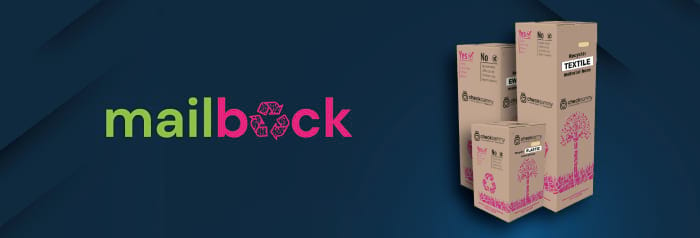How to Handle a Food Product Recall with Sustainability in Mind
“Food recall” the term inspires fear and frustration in boardrooms everywhere. While food recalls are essential for safeguarding consumers, they can also unleash havoc on your brand’s reputation and financial well-being if not handled carefully. To put it in perspective, in 2022 alone, a staggering 416.9 million units of food were recalled in the U.S. From salmonella to allergen contamination, or even inaccurate product labels, recall notices may be needed for a variety of reasons.
But here’s the twist: after the public health alerts go out and the books are updated, companies are still left with the question, “What do we do now?” The answer can have a massive impact on the company’s reputation and the global environment. In today’s world, sustainability is not just a buzzword; it’s a business mandate. So, hold on to your aprons, because we’re about to dive deep into the art of managing food product recalls with a touch of sustainability. It’s all about keeping your operations eco-friendly even when the going gets tough.
Old School vs. Sustainability: The Real Cost Comparison
In the world of food retail, product recalls are becoming increasingly common. Everything from beef products to vegetables has experienced a recall to some level. Even peanut butter is not immune. However, how you handle them can spell the difference between triumph and disaster for your brand. Now, let’s rewind a bit and look at how companies traditionally handle these recalls. It was a one-way ticket to the nearest landfill, no questions asked. Quick, easy, and, at first glance, convenient. But here’s the reality check – it’s far from efficient, and it can result in fines and hefty landfill fees.
Dumping food in landfills isn’t just about wasting the food itself; it’s squandering all the resources that went into making and transporting those products – water, energy, fuel, and labor. That’s not all; there’s the nasty issue of methane. As food breaks down in landfills, it releases methane, a greenhouse gas that’s over 25 times more potent than carbon dioxide in terms of its heat-trapping abilities over a century. That heat-trapping was a major contributing factor to why September 2023 was the hottest month on record.
The Sustainable Game Changer: Enter Organics Recycling
Imagine a method that breathes new life into recalled food products. That’s what organics recycling is all about. It takes organic waste materials, like recalled food, and transforms them into reusable resources, such as compost and energy. Instead of piling up the landfills, your company becomes a superhero, regenerating valuable organic material that’s a boon for the planet.
The perks of organics recycling:
- A Smaller Carbon Footprint: By diverting waste from landfills, you’re slashing methane emissions and doing your part to combat climate change.
- Brand Brilliance: Consumers these days are all about eco-friendly brands. Embracing sustainable recall methods positions your company as a champion of the environment.
- Getting the Numbers: Creating a smaller carbon footprint and avoiding the landfill means that you can spend less money on carbon offset credits and landfill fees.
- Giving Back to the Earth: Instead of waste, your recalled food items become premium compost, enriching the soil and supporting agriculture, or they turn into energy that powers the grid, saving costs.
In short, one version leads to the hottest month on record, and the other helps support agriculture, energy, and consumer needs.
Reverse Logistics: A Comprehensive Solution for Recalled Food Products
You might have heard the term “reverse logistics” tossed around the retail arena. It’s the art of rewinding the journey of products from the consumer back to the manufacturer or a similar location. For food recalls, it means sending those products back through the supply chain systematically, instead of sending them to the landfill.
Integrating reverse logistics with sustainability brings a world of benefits:
- Efficient Returns and Processing: Opting for reverse logistics addresses recalled items swiftly and consistently.
- Less Waste and More Reuse: Products get a second lease on life, reducing the environmental impact.
- Financial Wins: Organics recycling can offer cost savings and even revenue generation by selling the compost or energy.
Case Study: The Peanut Butter Project
Let’s take a real-world example that’ll leave you inspired. Picture a colossal peanut butter recall, where a manufacturer joined forces with CheckSammy. Instead of trashing tons of recalled peanut butter, we put our reverse logistics superpowers to work. We hauled 65 tons of recalled peanut butter to an anaerobic digestion facility. This initiative showcased the retailer’s commitment to sustainability and proved the tangible benefits of reverse logistics for food recalls.
Handling Recalls Sustainably: A Must for Modern Retail
So, how can you get started? Understanding your options is the first step to learning how to sustainably handle food recalls and large waste events. If you are interested in learning more about your options and how to put a system in place, we’ve assisted organizations of all sizes in turning food recall nightmares into sustainability triumphs. Get in touch with our team and take the eco-friendly route to recall management today.
See Our Services
Create a custom solution to meet your waste and sustainability goals. Contact us today!
Continue reading
Dive deeper into the CheckSammy Blog by reading one of our posts below
Feeling the Pain of Higher Resident Turnover? Apartment Junk Removal Can Help
If you’re a property manager, you’ve probably had a significant increase in tenant turnover over the last couple of years. So it’s no wonder apartment junk removal may be top of mind for you right now. There are several reasons for this shift. For one, the housing market is on fire right now. In 2020 […]
Read More About Feeling the Pain of Higher Resident Turnover? Apartment Junk Removal Can HelpSetting Up a Community E-waste Recycling Program
E-waste is the fastest-growing municipal waste stream according to the EPA, yet e-waste recycling isn’t keeping pace. In fact, only 12.5% of all e-waste is recycled, reports the EPA. Starting a community e-waste recycling program is a terrific way to ensure hazardous e-waste, like lithium-ion batteries, doesn’t end up in your community’s landfill. Creating an […]
Read More About Setting Up a Community E-waste Recycling ProgramWaste Management’s Role in the Circular Economy
Establishing a waste management program for your business or community is one of the best ways you can contribute to the circular economy. Here’s everything you need to know about waste management’s role in the circular economy (and how to get involved). What Is the Circular Economy? Our current economic model is all about taking […]
Read More About Waste Management’s Role in the Circular Economy5 Reasons to Consider a Textile Recycling Program for Your Organization
Americans sent more than 17 million tons of textiles to landfills in 2018, a volume that is only increasing every year, reports the Environmental Protection Agency. When you think about the fact that it can take over 200 years for textiles to decompose, it’s easy to grasp how large textile waste’s contribution is to the […]
Read More About 5 Reasons to Consider a Textile Recycling Program for Your Organization8 Benefits of Environmentally Friendly Power Washing Services
If you’re into maintaining the curb appeal of your business or home, then you’ve probably heard of pressure washing. Pressure cleaning involves using high-pressure water spray to remove grime, mold, dust, paint, mud, and other junk from objects or surfaces. Many people worry that pressure washing isn’t good for the environment, but this couldn’t be […]
Read More About 8 Benefits of Environmentally Friendly Power Washing ServicesWhy Our Customers Love Our Full-Service Junk Removal
If you’re looking for full-service junk removal services, you’ve come to the right place. CheckSammy is a one-stop shop for all your junk removal and sustainability needs. From our affordability, simplicity, and unrivaled turnaround times to our innovative sustainability solutions and patented technology and data, it’s clear why some of North America’s biggest companies choose […]
Read More About Why Our Customers Love Our Full-Service Junk RemovalTips for a Stress-Free Move From An Eco-Friendly Junk Removal Company
What does an eco-friendly junk removal company know about moving? Quite a lot, actually. Moving can be an especially chaotic time. You have to pack everything up, get rid of unwanted items, clean your property, load everything up, and move your things to your new location. That doesn’t even include the unpacking and resettling period. […]
Read More About Tips for a Stress-Free Move From An Eco-Friendly Junk Removal CompanyCollege Junk Removal Tips for Student Move-In Day
As the new school year gears up, colleges across the country are looking for ways to clean up their campuses before the new year begins, and many of them want to do so sustainably. College junk removal isn’t easy, though, especially around move-in week—and when trying to do so sustainably. As students move in and […]
Read More About College Junk Removal Tips for Student Move-In Day8 Items Hospitality Businesses May Not Know They Can Recycle
One hotel guest produces 2.5 pounds of trash every single day. Just a single hotel room produces around one cubic yard of waste each month, which totals 200 gallons of waste per room every month. Most of this waste goes straight to the landfill, even though research shows that up to 60% of it is […]
Read More About 8 Items Hospitality Businesses May Not Know They Can Recycle












